‘A dreadful ballad’: Johnny Rotten’s Eurovision entry that could kill punk once and for all
‘Hawaii’ has received terrible reviews, but the Sex Pistols frontman believes it is the ideal song to represent Ireland at a festival that symbolizes the polar opposite of who he once was
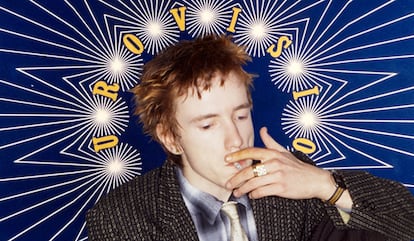

On social media, which is almost always merciless, they’ve already reached a verdict. Hawaii, the first song that John Lydon – Johnny Rotten to his friends – has released in eight years is “the definitive nail in the coffin of British punk.” The song –released under the name of Rotten’s band Public Image LTD, of which he has been the only permanent member since 1978– has been called a “horrendous” ballad, “real shit,” “ordinariness” and an “outburst.” Only his fans have attempted to defend Lydon with sanctimonious arguments. Some give him credit for still being “alive and kicking” after his exhausting 66-year-long personal crusade against the system; they say that, beyond its musical virtues (or lack thereof), Hawaii represents a commendable act of resistance.
Nevertheless, if rivers of ink have been spilled over this feather-light contemporary ballad, it is because 66-year-old John Lydon has decided to nominate it as an entry to represent Ireland in this spring’s Eurovision Song Contest. Yes, Johnny Rotten, the Sex Pistol who set out to bring anarchy to the UK 46 years ago, has just volunteered to enter the soporific song in the European competition’s preliminary round.
It is difficult to conceive of an event less punk than Eurovision. Launched in 1956, the first competition took place in Lugano, Switzerland, and only seven countries participated. Since then, the festival has contributed to the rise of the greats of melodic song like ABBA, Céline Dion, France Gall, Sandie Shaw, Cliff Richard, Massiel, Raphael and Julio Iglesias. According to British journalist Jon Henley, one of Eurovision’s most eloquent detractors, it’s been “an unmissable annual extravaganza of glitter and tight trousers, a joyful celebration of silliness” for decades. Moreover, he notes, the festival is “musically negligent and frankly reactionary in aesthetics” and “in recent years, [has] acquired a disturbing geopolitical dimension.” Eurovision has become a map of the participating nations’ affinities and prejudices.
Ireland, what have they done to you?
Until the late 1980s, when Eurovision was the preserve of the 20 Western European countries (with occasional guests like Yugoslavia, Turkey, Israel and Morocco), Ireland was one of the event’s powerhouses. But since the constellation of Eastern European countries burst onto the scene, the Celtic tiger has barely managed to qualify for the finals, despite the richness of its musical traditions. The Irish last reached the final round in 2018, and they came in sixteenth. Perhaps they can count on the votes of a handful of Galicians in Spain or Bretons in France nostalgic for a very diluted shared Celtic identity, but at the moment of truth their allies – the only ones with whom they can exchange votes based on courtesy and cultural proximity – are their ancestral enemies, the British.
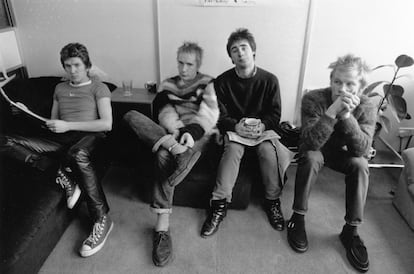
Lydon, a Londoner of Irish descent, has offered his services to correct that historical wrong. In the absence of a Shane McGowan or a Bono willing to lend a hand to restore Irish pride, he has stepped into the void with a lackluster, rootless song that has a vaguely Polynesian air, embarrassing lyrics and a solid sentimental story: he dedicated it to his wife, Nora Forster, who is suffering from Alzheimer’s disease.
Laura Snapes explains in The Guardian that Rotten and his band, Public Image Ltd. (PiL), which he has brought out of hibernation for the occasion, will compete in Eurovision’s preliminary round with Adgy, Connolly, Leila Jane, Wild Youth and a long list of still semi-unknown soloists and bands. Jazz Monroe adds in Pitchfork that Lydon’s is the only nomination that has “some international weight,” but, a priori, his chances of being chosen are slim. He is predicted to fail loudly, like those active but washed-up professional soccer players who have agreed to participate in Ibai Llanos’s circus-like Kings League.
What’s more, Monroe reminds us that this “would not be Lydon’s only recent flirtation with proudly schlocky entertainment.” In 2021, he donned a jester’s mask on the TV show The Masked Singer; even then, people said that he was “spitting on his legacy” (which, if you think about it, is very punk) and disrespecting himself.
Punk’s life, death, resurrection, and right turn
Actually, like his (almost) peer Morrissey, Rotten has shamelessly participated in reality shows and after-dinner talk shows for a few years now. The general public has become accustomed to his presence, even older people who were already adults when punk was born and viscerally rejected it.
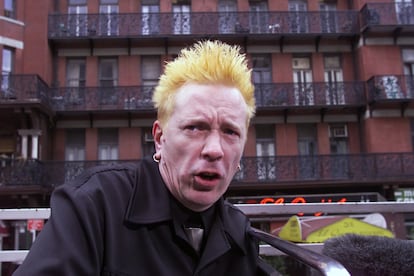
Today, Lydon is welcomed with complicit sympathy, aided by the conservative drift of his views on life and politics. As in Morissey’s case, a subsection of the audience finds it gratifying that the eternally aggressive and talkative boy-man now believes that Britain should never have ceased to be an empire, that immigration is a biblical punishment and that Brexit was a great idea.
But back to the last nail in punk’s coffin. The notion that punk is dying, already dead or even stillborn has been a common refrain almost since the genre emerged, first in underground New York and shortly thereafter in London in 1976, amid the winter of discontent. Some fundamentalists of the spirit of ‘76 believe that both the original attitude and the punk sound itself began to languish in 1977, went on life support only to die in 1978 and left only a distorted and equivocal trace of itself after 1979.
From this perspective, the early punks – the Bromley contingent, the handful of kids who bought clothes at Sex (the store that designer Vivienne Westwood and her partner, the unconscionable but brilliant Malcolm McLaren, had in the Chelsea neighborhood), the squatters of Maida Vale and unhinged free spirits like Sid Vicious – were the only genuine punks.
If that were true, if British punk died at some indeterminate moment in late 1977 or early 1978, most of what we currently understand as punk would in fact be posthumous punk, an ersatz, sweetened and bourgeois version. According to Jon Savage, an official chronicler of the genre and the author of the essential book England’s Dreaming: Sex Pistols and Punk Rock: “Punk’s real year zero was the consecration of the Sex Pistols, but nothing was done in London that had not been previously anticipated by New York and The Ramones.” Since then, the style and the spirit have survived but not well. Punk “has mutated, but it hasn’t died. It’s still out there somewhere, and the closer you look for it in the sewers, the more likely you are to find it.”
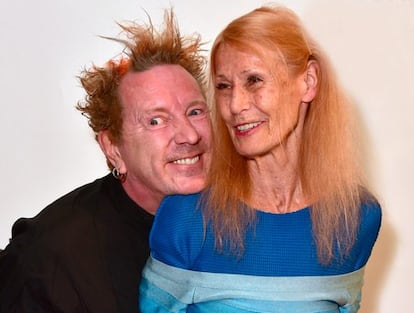
In his stunning autobiography, Anger is Energy: My Life Uncensored, John Lydon himself notes the multiple times that punk has died and been resurrected. First, with the arrival of Malcolm McLaren, the man who became the Sex Pistols’ manager, took them on tour all over England, made them the stars of a media-friendly act of sabotage of Queen Elizabeth II’s jubilee and got them to record their debut album, Never Mind the Bollocks, with a multinational label that suddenly decided to be daring, EMI.
Today, Rotten considers McLaren an “opportunist and a bloodsucker” who prospered by vamping on other people’s talent. He believes that the essence of the Sex Pistols can be found during the short period in which they had not yet become the pawn of McLaren’s greedy commercial maneuvers. Above all, that spirit was located on stage, where Rotten, a working-class art student who’d suffered from meningitis and been a victim of bullying at school as a child, unleashed his anti-establishment rage with dazzling results.
In January 1978, Lydon left the group and it disbanded, although the three remaining members – Cook, Jones and Vicious – continued recording and performing as the Sex Pistols for a few more months under the supervision of McLaren, who was reluctant to part with the goose that laid the golden eggs. According to Lydon, a second death occurred then, followed by an immediate resurrection, led by his new band, PiL, which took up the spirit of punk and led the transition to post-punk with stimulating albums like First Issue (1978) and Metal Box (1979).
The dearly departed
From that point on, those who insist on giving the punk narrative a funereal air can find multiple reasons to do so. Many of those who embodied the spirit of ‘76 have passed away. Most recently, Vivienne Westwood, the movement’s aesthetic godmother, died just a few weeks ago. But several went before her, including Poly Styrene (2011), Malcolm McLaren (2010), Joe Strummer (2002) and Sid Vicious and his girlfriend, the incomparably punk Nancy Spungen (1979).
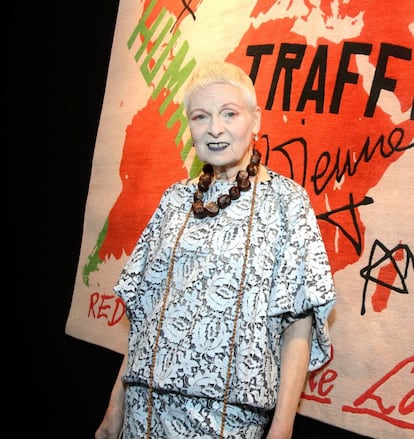
Some of those deaths affected Lydon personally. For instance, Nora Forster’s daughter and Lydon’s stepdaughter Ariane Daniela Forster – better known as Ari Up, the singer of The Slits – died in October 2010 at the age of 48 of breast cancer, which she had decided not to treat properly until it was too late.
American critic Greil Marcus has said that it is foolish to expect contemporary music labels to survive for over 30 years. If they do, it’s at the cost of continuous changes and revivals that shed some elements and incorporate new ones in their place. If that is true for rock’n’roll, it’s no less true for punk, a genre that always saw itself as an ephemeral art and embraced living fast, dying young and leaving a beautiful corpse.
For his part, Johnny Rotten no longer considers himself to be that version of punk, and 47 years after the winter of discontent, how could he? But he does feel attached to its spirit and believes that he has been updating it as the decades have gone by.
Today, he believes that punk means sympathizing with Donald Trump, whom he sees as a sort of working-class hero who is confronting the dictatorship of political correctness. And, no matter what Lydon’s detractors may say, it would also be punk to represent Ireland at the Eurovision Song Contest, an act of situationist subversion that we may never see but would certainly be worthwhile. Even if it is with an “embarrassing” and “horrendous” song.
Sign up for our weekly newsletter to get more English-language news coverage from EL PAÍS USA Edition
Tu suscripción se está usando en otro dispositivo
¿Quieres añadir otro usuario a tu suscripción?
Si continúas leyendo en este dispositivo, no se podrá leer en el otro.
FlechaTu suscripción se está usando en otro dispositivo y solo puedes acceder a EL PAÍS desde un dispositivo a la vez.
Si quieres compartir tu cuenta, cambia tu suscripción a la modalidad Premium, así podrás añadir otro usuario. Cada uno accederá con su propia cuenta de email, lo que os permitirá personalizar vuestra experiencia en EL PAÍS.
¿Tienes una suscripción de empresa? Accede aquí para contratar más cuentas.
En el caso de no saber quién está usando tu cuenta, te recomendamos cambiar tu contraseña aquí.
Si decides continuar compartiendo tu cuenta, este mensaje se mostrará en tu dispositivo y en el de la otra persona que está usando tu cuenta de forma indefinida, afectando a tu experiencia de lectura. Puedes consultar aquí los términos y condiciones de la suscripción digital.








































